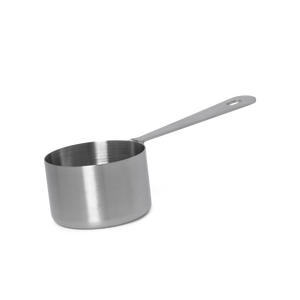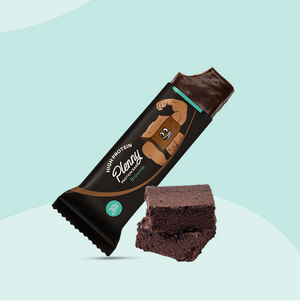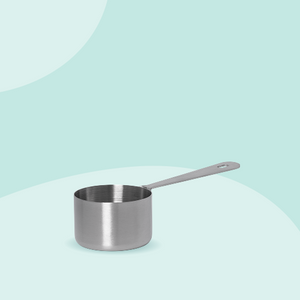Have you ever noticed that, for some reason, during the winter months you can’t help but put on some extra weight? At first you’re not sure if it’s just your regularly scheduled dose of bodily insecurities, but then the washing machine seems to have shrunken your favorite sweaters and pants, while your underwear, socks and towels magically appear to be fine… First of all, gaining weight is nothing to worry about. Everyone’s weight goes up and down and as long as you’re healthy you shouldn’t give it another thought. Still, since we humans are especially prone to gain weight during winter time we thought we’d shed some light on the science behind this phenomenon. Good news: we can (partly) blame evolution!
Evolutionarily speaking there are many benefits to having some extra weight. For example, in the ‘natural world’, weight and size play a big part in determining hierarchy within one species as well as between different species. To oversimplify it: more weight is more power. But maybe even more importantly: humans were hunters and gatherers until about 12,000 years ago (1). This meant that, especially in winter when food was scarce, humans had to stock up. To avoid starvation, surplus weight would have been protective and therefore desirable.
Modern humans still appear to experience the ripple effects of thousands of years of evolution, leading to our biological and behavioural changes during winter time.
In this article, we will look into people's behavioural patterns and biological make-up that cause the weight gain, and offer 6 tips to keep it under control.
Behaviour
Research suggests our biological instincts prepare our body for winter, kind of like how bears prepare for hibernation. Once the days start to get shorter and shorter, we will consume about 200 additional calories per day (2). This is backed by M.D. Ann Kulze, author of Eat Right For Life, who says “cold weather naturally incites an innate tendency to overindulge” (9).
You’ll most likely want to resort to your favourite sweets, or perhaps you’ll indulge your sweet tooth with an equally delicious but much healthier alternative: Plenny Bar!
Of course, the abundance of food (in most parts of the world) is still a relatively new phenomenon, and so it’s not so strange that our physiology hasn’t yet adapted to this new world order. Think about it: homo sapiens has been around since about 200.000 years (3), but only 12.000 years ago began farming and developing agricultural skills. So only for about 6% of human existence have humans had the luxury of (relative) abundant food.
Biology
Up until even more recently, before the invention of electric light in 1802 (8), human activity was linked to day (active) and night (resting). As a result, evolution made sure humans had corresponding metabolism: one ‘setting’ for daytime and one ‘setting’ for night time (4). Daytime would result in high metabolism - burning more calories and providing more energy for activity - while nighttime would result in a lower metabolism, burning less calories and accessing mostly stored energy. Melatonin (a hormone the body produces when it gets dark) is the chemical signal that lets your body know the day is at its end and it’s time to turn on ‘standby mode’.
With the rise and worldwide use of electric light, this natural rhythm was disrupted. Even dim lighting will cause your body to produce considerably less melatonin than it naturally would (5), and this disconnect is now considered by researchers to play a significant role in our struggle with weight gain (6).
It’s not you, it’s evolution!
Evolution has set us up to fail with a double whammy: an increased appetite and desire for sweet/fatty foods during wintertime, while the artificial light from our relatively new living conditions prevent melatonin from informing our body about the early night time, keeping our metabolism in the ‘active’ mode while in fact we’ve already been watching Netflix under a blanket for 6 hours. This day time metabolism might seem rather convenient at first glance, but in natural circumstances your body would actually be powering down once the sun starts setting. Instead, now it will keep thinking it’s still in ‘active’ mode, asking for more energy than you actually need. And the energy you don’t burn, you store!
Again, there is no shame in gaining weight during the coldest and darkest weeks of the year (or any other time of year, for that matter!), and hopefully this article will emphasise that it’s even very normal. Still, we have to take into consideration our health, and since worldwide obesity has tripled over the last 45 years (7) we should beware of the potential risk of gaining weight.
6 Tips for eating healthy during the winter months
At Jimmy Joy we pride ourselves on being consistent throughout the entire year when it comes to helping people embrace healthy eating habits by creating delicious, ‘nutritionally complete’, plant-based meals. Our products are ready-to-consume meals in the form of a shake or bar, in several natural flavours. Each one of our meals is made out of the highest quality ingredients and consists of a carefully calculated ratio of optimal nutrition. So, to help you adopt or maintain healthy eating habits throughout the upcoming winter months, we’ve got six handy tips for you.
- Avoid your vices
A general tip for keeping your weight under control during the winter time is to limit your sugar intake. High glycemic carbs can make your insulin go through the roof, increasing your appetite and promoting energy storage in the form of fat. Instead, work more protein into your diet. It will leave you feeling full much longer - giving you more control over your appetite - and it will help to maintain muscle. And what do you know - it just so happens our products are low in sugar and high in protein!

- Make eating healthily fun
Sometimes we forget that eating healthily doesn’t need to be a difficult and boring task. Healthy eating can be colourful, tasty and exciting.
Let’s take fruits and vegetables. The amount of flavours and colours you can combine on your plate is endless. Have you ever tried mixing them together? Like, for example, putting dried cranberries or slices of an apple in a salad. We also love making colourful nutritional bowls. It’s the best way to make use of anything you have left in the fridge and mix different flavours. Tip: buy yourself a big beautiful ceramic bowl so that your dishes will look extra ‘Instagramable’.

- Set a cooking challenge
You can think of eating healthy as your personal Master Chef competition. On those cooking shows they often set a challenge where the cooks need to use one ingredient and transform it into a creative, mind-blowing dish. So, every day you can choose one ingredient you want to use and think of different ways to turn it into something truly outstanding. One example is tofu – you can fry it, make a curry out of it, put it in pad thai, use it to replace scrambled eggs, or even bake a pie out of it. Check out our recipes page if you need some inspiration to get started!

- No time? No worries!
“Well, I just don’t have time to eat healthily” - the number one excuse we don’t believe in! Eating healthily is no more time consuming as eating unhealthily. If you are short on time though, we would advise you to either plan ahead and try prepping your meals one or two days in advance, or consider using a nutritionally complete meal provider who can pack all the essential vitamins and nutrients you need into one ready-to-consume-meal. Yes, we are that nutritionally complete meal provider.

- Set yourself a personal goal
It’s important to keep reminding yourself why you want to eat healthily. That can vary from being something very broad, such as feeling more energised, to being a more narrow, personal goal. Really try and think for yourself what is it that motivates you every day. Then write it down on a piece of paper and stick it on your fridge door - that will be your little friendly reminder that you are doing a great job!

- Reward yourself
Two of our favourite words: cheat meal. Yes, you can have that triple chocolate chip cookie dough ice cream! Choose one day in a week where calories don’t count and you can eat whatever you feel like. Interestingly enough though, as soon as eating healthily becomes part of your daily routine, that cookie dough ice cream will most likely not sound as good anymore. But still, allow yourself to always at least have a chance to indulge and have a cheat meal – you know, for old times sake.

Jimmy Joy provides nutritionally complete, plant-based meals that are good for you and the planet
SOURCES
- National Geographic Society. 2020. Hunter-Gatherer Culture. [online] Available at: <https://www.nationalgeographic.org/encyclopedia/hunter-gatherer-culture/#:~:text=Hunter%2Dgatherer%20culture%20was%20the,animals%20and%20foraging%20for%20food> [Accessed December 2020].
- Cronise, R., Sinclair, D. and Bremer, A. (2014) "The “Metabolic Winter” Hypothesis: A Cause of the Current Epidemics of Obesity and Cardiometabolic Disease", Metabolic Syndrome and Related Disorders, 12(7), pp. 355-361. doi: 10.1089/met.2014.0027.
- Just How Old Is Homo sapiens? (2020). Available at: https://www.britannica.com/story/just-how-old-is-homo-sapiens (Accessed: 15 December 2020).
- Cronise, R., Sinclair, D. and Bremer, A. (2014) "The “Metabolic Winter” Hypothesis: A Cause of the Current Epidemics of Obesity and Cardiometabolic Disease", Metabolic Syndrome and Related Disorders, 12(7), pp. 355-361. doi: 10.1089/met.2014.0027.
- Zeitzer, J. et al. (2000) "Sensitivity of the human circadian pacemaker to nocturnal light: melatonin phase resetting and suppression", The Journal of Physiology, 526(3), pp. 695-702. doi: 10.1111/j.1469-7793.2000.00695.x.
- Cipolla-Neto, J. et al. (2014) "Melatonin, energy metabolism, and obesity: a review", Journal of Pineal Research, 56(4), pp. 371-381. doi: 10.1111/jpi.12137.
- Obesity and overweight (2020). Available at: https://www.who.int/en/news-room/fact-sheets/detail/obesity-and-overweight (Accessed: 15 December 2020).
- The History of the Light Bulb (2013). Available at: https://www.energy.gov/articles/history-light-bulb (Accessed: 15 December 2020).
-
HuffPost (2016). Available at: https://www.huffingtonpost.com.au/2016/08/30/the-truth-about-why-we-gain-winter-weight-and-how-to-get-rid-of_a_21462347/#:~:text=%22The%20hormone%20melatonin%2C%20which%20controls,%2C%22%20she%20told%20HuffPost%20Australia. (Accessed: 15 December 2020).

 Everything You Need In One Meal
Everything You Need In One Meal
 Stay Full For 3-5 Hours
Stay Full For 3-5 Hours








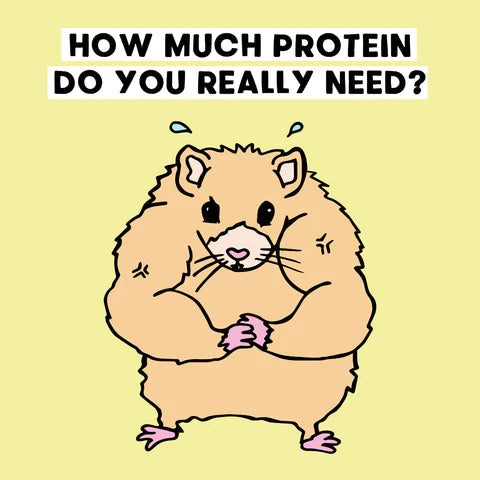








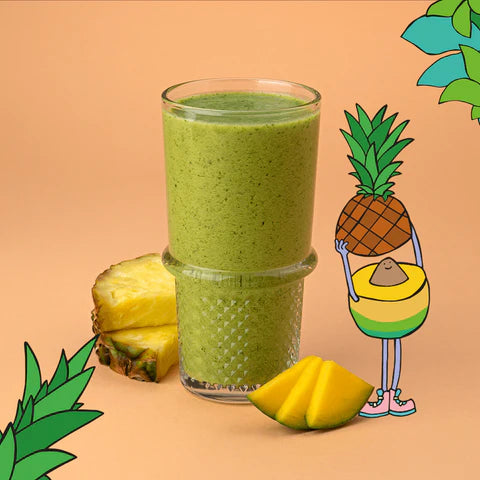


 Product added to cart
Product added to cart










